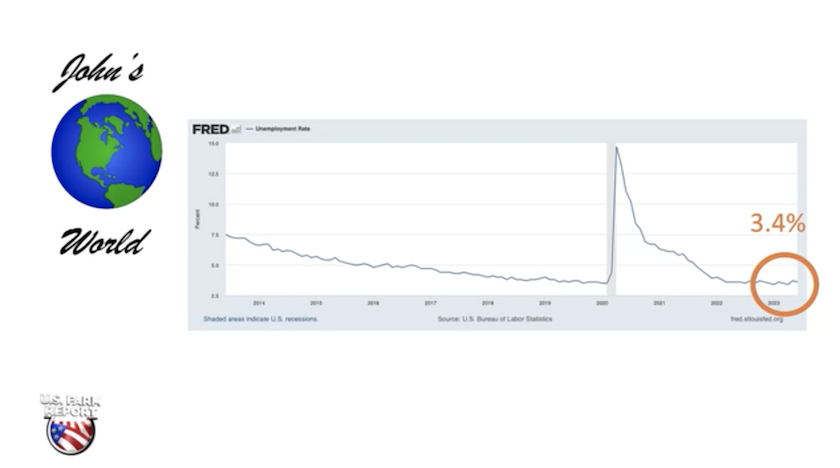John Phipps: Is There Really a Shortage of Truck Drivers?
USFR-John's World 8.12.23
Cast your mind back to early 2022 and the headline-grabbing Trucker Shortage. My conclusion then was there wasn’t much hard data to substantiate that alarm. There has always been a need for truckers and perversely there seems to have always been ample qualified workers to fill it.
It didn’t take an economics degree to figure out the problem: truckers simply weren’t being compensated enough to entice and keep workers. Now a year and a half later the headline is the demise of one of America’s largest trucking companies – Yellow Trucking – and the end of 30,000 jobs they represent.

Freight companies are struggling now with reduced demand, which threatens even more trucking jobs. At some point most of us begin to wonder about these alleged shortages. Adding to the muddled picture of jobs and pay is the historically low unemployment rate which emphatically illustrates how small the pool of potential employees is.
Related Story: Walmart Will Now Pay Starting Truck Drivers $110,000, Could It Backfire and Make the Nationwide Trucker Shortage Even Worse?
For trucking, which is often a career step up from entry wage employment, increases in the minimum wage by many states has helped low-wage employees keep up.
Since the pandemic, the surprising strength of low wage compensation compared to skilled or managerial wages removes some motivation for workers to consider a trucking job. Note the inversion after the pandemic of which income quintile is seeing greater wage increases.
Trucking companies have long dealt with astonishing turnover rates since the prospective employee pool was large and already qualified. New CDL licenses are issued to about half the current trucker numbers each year. Short-lived shortages are not limited to employees either.
Related Story: SHIP IT Act Could Save Truck Drivers Up to $10,000 and Cover CDL Costs
I started looking back at the numerous “shortages” and dire predictions of the last few years. At least some semiconductor chips, for example, are in now surplus, even a glut. We’ve discovered more new sources for lithium than anyone imagined. Ditto for copper, cobalt, and phosphates.
It appears markets can remedy shortages faster than we have imagined, and the few stubborn scarcities are sidestepped with alternative solutions. Not always, but certainly more than the hysterical headlines suggest.
There will always be warnings about trucker shortages, I suspect, but not from truckers.







